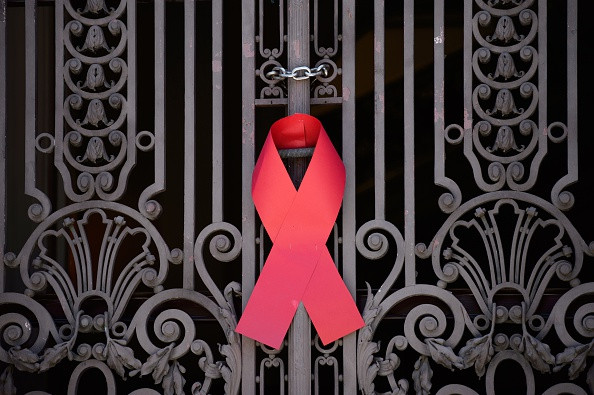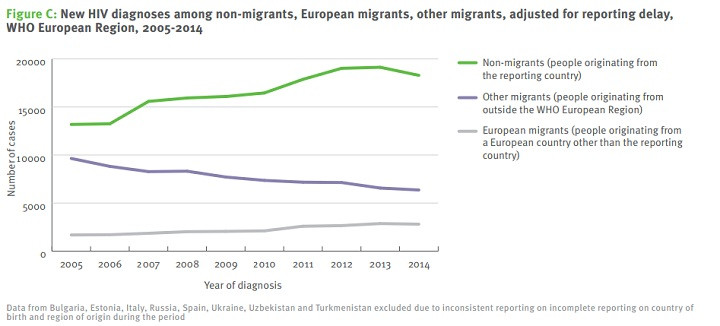WHO: New HIV cases rise to highest level in Europe

The European Region is battling a record number of newly-diagnosed HIV infections, says a World Health Organization report, with the highest number coming from eastern Europe. The number of new cases diagnosed has more than doubled in the past decade.
In 2014, about 142, 197 people were diagnosed with the infection in 50 of the 53 countries of the WHO European Region (includes Russia and other eastern European states), the 'highest ever' since reporting began in the 1980s.
"Despite all the efforts to fight HIV, this year the European Region has reached over 142 000 new HIV infections, the highest number ever. This is a serious concern," said WHO Regional Director for Europe, Zsuzsanna Jakab, in a press release. Data released by the European Centre for Disease Prevention and Control (ECDC) and the WHO indicates that in 2013 there were 13,6235 new infections and last year the report listed 14,2197 new cases, a 4.4% annual increase.
Of the total number of new cases detected, 77% were diagnosed in the east of the region and 21% in the European Union (EU) and the European Economic Area (EEA). Russia alone accounted for 60% of all diagnoses. (Read full report here)

The two biggest concerns in the report, however, are late diagnosis of the infection, and an alarming increase in HIV infections among homosexual men. In the EU/EEA bloc, almost 42% of newly-diagnosed HIV cases were among men who have sex with men in 2014 compared to 2005 when it was 30%. The east in this respect scored quite low with less than 2% cases attributed to homosexuality.
As for late diagnosis, almost two thirds of Aids diagnoses reported in 2014 occurred at the time of or shortly after the HIV diagnosis. This trend indicates that the immune system of these people had already started to fail by the time their infection got detected. Late detection increases the risks of ill health, death and HIV transmission.
The report goes on to say that contrary to popular belief that migrants may be bringing in the infection, during the past decade, the number of diagnoses of HIV infection in migrants in Europe has declined sharply, and evidence shows that a significant proportion acquire HIV only after arrival in Europe. Jakab also urged countries in Europe to offer HIV prevention, testing and treatment services to all refugees and migrants, irrespective of their legal status.

© Copyright IBTimes 2025. All rights reserved.




















